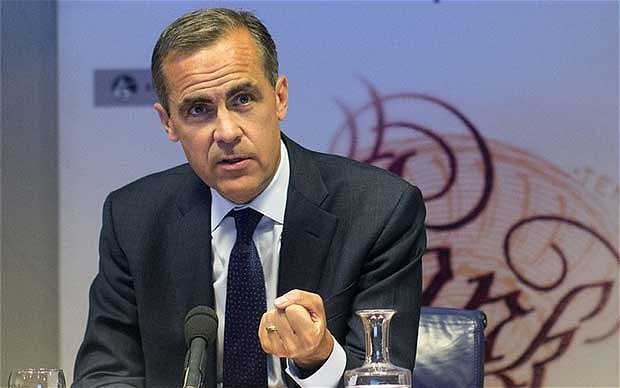He said the central bank would consider the case for adding to the £375bn it has already pumped into the economy should the recovery falter.
“But my personal view is, given the recovery has strengthened and broadened, I don’t see a case for quantitative easing and I have not supported it,” he said in an interview with the Yorkshire Post published on Friday.
The pound rose 0.4pc against the dollar to $1.6135 at 6am in London, reports The Telegraph.
Mr Carney said the recovery was broadening across the country and had been helped by a rise in growth in Europe and the United States.
“The advanced economies as a whole are doing a bit better. That’s going to help the UK as a whole. These are more traditional export markets so that matters,” he said.
“Within the UK, we are probably leading the pack of the major advanced economies as we speak right now. But of course we had the deepest recession so we are coming back from that.”
Mr Carney said the sustainability of the recovery would be underpinned by getting more people into work and increasing wages.
“That’s going to come from sustained demand and a balanced recovery,” he said.
Mr Carney said the housing market has seen a turnaround, but levels of activity are still only around two thirds compared to longer-term averages for the sector.
ONS figures this month showed that while prices in London have risen 10pc since financial crisis, those in the rest of the country have only gained 0.8pc.
He said the Bank of England need to be “vigilant” about a possible housing bubble developing. George Osborne has responded to fears about his Help for Buy scheme driving a housing boom with plans to give the central bank powers to intervene.
Mr Carney also defended the Bank’s new forward guidance policy.
“This is a policy for the UK as a whole and the point is that businesses and households understand that we are not going to look to raise interest rates until we see the economy really growing.”
He reiterated the need for Britain’s banks to be stronger.
“You can’t lend unless you’re adequately capitalised and that’s been proven time and time again and getting the UK banks and building societies to that capital threshold has been incredibly important.” Mr Carney said.


